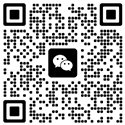外汇的英文(外汇英文单词)
Understanding Forex Trading: A Comprehensive Guide
Forex trading, often referred to as foreign exchange trading, is one of the largest and most liquid financial markets in the world. It involves the buying and selling of currencies between individuals, businesses, and institutions. The forex market operates 24 hours a day, five days a week, making it accessible to traders worldwide. This guide provides a detailed overview of forex trading, its mechanics, benefits, risks, and strategies to help you make informed decisions.
Overview of the Forex Market
The forex market is the largest financial market by volume, with a daily trading volume exceeding $6 trillion. It is a decentralized market where currencies are traded directly without the need for an intermediary. The major currencies involved include the US Dollar (USD), Euro (EUR), Japanese Yen (JPY), British Pound (GBP), Chinese Yuan (CNY), and others. Traders participate in this market to capitalize on currency appreciation, hedge against risks, or speculate on market movements.
Key Participants in the Forex Market
1. Banks and Financial Institutions: These are the primary players in the forex market, acting as intermediaries between individual and institutional traders. They provide the liquidity and facilitate large-scale transactions.
2. Central Banks: By influencing interest rates and monetary policies, central banks impact currency values. For example, a country with a higher interest rate tends to strengthen its currency.
3. Corporations: Multinational companies engage in forex trading to hedge against currency risk associated with international trade.
4. Retail Traders and Investors: Individual traders and investors participate in the forex market to capitalize on price movements, ranging from high-frequency traders to long-term investors.
How Forex Trading Works
Forex trading revolves around trading currency pairs, which represent the exchange rate between two currencies. For example, EUR/USD represents how many Euros can be exchanged for one US Dollar. Traders can choose to buy a currency (go long) or sell a currency (go short).
Types of Forex Trading
1. Spot Trading: This involves buying and selling currencies for immediate delivery. Spot prices are determined by supply and demand in the market.
2. Futures and Forwards: These are contracts to buy or sell currencies at a predetermined price and date in the future. They are subject to margin requirements and carry risks such as directional risk.
3. Options: Currency options give traders the right, but not the obligation, to buy or sell a currency pair at a specified price and date. They provide flexibility but come with premiums.
4. CFDs (Contracts for Difference): CFDs allow traders to speculate on price movements without owning the underlying asset. They are highly leveraged and risky.
The Forex Market Participants
1. Banks and Financial Institutions: As mentioned earlier, these institutions play a crucial role in facilitating forex transactions. They also provide services like currency conversion and risk management tools.
2. Central Banks: Central banks influence the global currency market through their monetary policies. For instance, the Federal Reserve's interest rate decisions can impact the US Dollar's value.
3. Corporations: Multinational companies often engage in forex trading to hedge against currency risk. For example, a company operating in the European Union may hedge its exposure to the Euro.
4. Retail Traders and Investors: Individual traders and investors participate in the forex market to capitalize on price movements. They use a variety of tools and strategies to manage risk and maximize returns.
The Forex Market Risks
Forex trading is not without risks, and traders must be aware of them to make informed decisions.
1. Market Volatility: The forex market is known for its high volatility, meaning prices can change rapidly and unpredictably. This can lead to significant gains or losses.
2. Leverage: Forex trading involves high leverage, which amplifies both potential gains and losses. A small change in price can result in a substantial profit or loss.
3. Psychological Factors: Traders are often influenced by emotions, which can lead to impulsive decisions. For example, fear or greed may cause traders to take unnecessary risks.
4. Regulatory Changes: Changes in regulations or policies by governments or central banks can impact currency values. Traders must stay updated on these developments.
Forex Trading Strategies
1. Day Trading: This involves opening and closing trades within the same day. Day traders aim to capitalize on short-term price movements.
2. Swing Trading: Swing traders hold positions for several days to a week, aiming to profit from medium-term price trends.
3. Position Trading: Position traders hold positions for weeks or months, aiming to profit from long-term trends.
4. Hedging: Traders use hedging strategies to reduce risk exposure. For example, using options or stop-loss orders to lock in profits or limit losses.
5. Fundamental Analysis: This involves analyzing economic indicators, political events, and company earnings to predict currency movements.
6. Technical Analysis: This involves analyzing price charts and technical indicators to identify support and resistance levels, trend directions, and potential breakouts.
The Future of Forex Trading
The forex market is constantly evolving, with new technologies and strategies emerging. Here are some trends to watch:
1. Algorithmic and Quantitative Trading: These automated trading strategies use complex models to execute trades at optimal times. They are often used by hedge funds and large institutions.
2. High-Frequency Trading (HFT): HFT involves rapid execution of trades in response to market movements. It is highly competitive and requires advanced technology and expertise.

3. blockchain and Decentralized Finance (DeFi): While still in its infancy, blockchain technology and DeFi are disrupting the forex market by introducing new ways of conducting transactions and managing risk.
4. Geopolitical Risks: The forex market is increasingly influenced by geopolitical events, such as trade wars, elections, and political instability. Traders must stay informed about these developments.
Conclusion
Forex trading is a complex and dynamic market that offers both significant opportunities and challenges. By understanding the mechanics of forex trading, the key participants, the associated risks, and the various trading strategies, traders can make informed decisions and manage their portfolios effectively. As the forex market continues to evolve, staying updated on new trends and adopting a risk-aware approach will be crucial for success. Whether you're a seasoned trader or a novice investor, the forex market provides a wealth of opportunities to grow your wealth and achieve your financial goals.
本文来源:本站责任编辑:
【温馨提示】转载请注明原文出处。 此文观点与零零财经网无关,且不构成任何投资建议仅供参考,请理性阅读,版权归属于原作者,如无意侵犯媒体或个人知识产权,请联系我们,本站将在第一时间处理。零零财经对文中陈述、观点判断保持中立,不对所包含内容的准确性、可靠性或完整性提供任何明示或暗示的保证,请读者仅作参考,并请自行核实相关内容。
客户对我们的评价
-
外汇投资交易 来自唐山 的客户评价:
-
外汇保证金交易 来自北京的客户分享评论:
无知的恐惧当你用实盘一进场做单就心跳加速,这种恐惧的心理源于你对市场未来走势的无知,也就是无知造成的恐惧。恐惧的根源在于:当你进场时根本就没有确凿的支持你预期走势的充足理由,所以你心中没底,更不知道方向,一旦趋势反着你头寸的方向运行你就会恐惧!这种恐惧不可怕,因为是无知造成的恐惧,那么克服它自然很简单:那就是去充实你的理论知识,完善你的技术分析。心理上恐惧第二种恐惧是已有理论知识武装了自己头脑后的恐惧,这种恐惧是心理造成的。主要表现为:明明知道行情顺着自己预期的概率远远大于失败的概率,甚至在做了完善的交易 -
外汇入场交易 来自温州 的客户评价:
选择模拟账户.初学者应从模拟账户开始,了解市场运作并测试交易策略,如趋势跟随(顺势交易)和逆势交易(反转交易)。模拟账户提供无风险环境,让投资者在没有资金损失的情况下实践交易。
风险管理。风险控制是成功交易的关键。投资者应学会使用止损单,设定亏损的最大限额,以避免过大损失。确保每笔交易都有明确的计划,包括目标利润和可承受的损失范围。













外汇市场,作为全球最大的金融市场,每天的交易量高达数万亿美元。对于初学者来说,了解如何开始外汇投资并掌握基本技巧是至关重要的。以下是一些关键步骤和技巧,帮助您在外汇市场中站稳脚跟。
在开始投资之前,您需要对外汇市场有一个基本的了解。这包括学习货币对的含义、市场的运作方式以及影响汇率变动的因素。例如,经济数据发布、政治事件和市场情绪都可能影响货币价值。